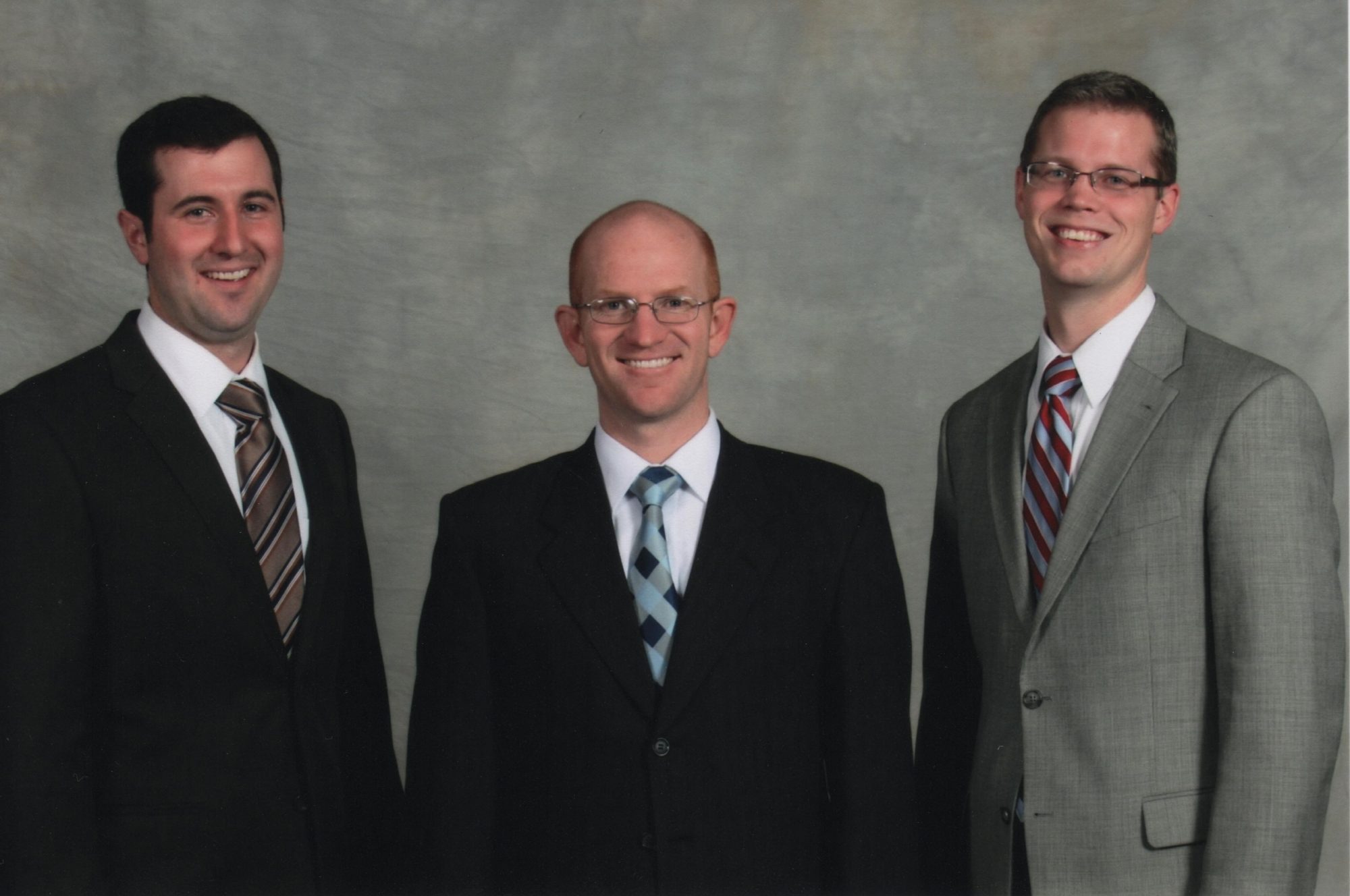(Shown at top: Mike Workman, Roger Phillips, AJ Reall)
Case competitions have become an integral part of the MHA student experience. Recently, MHA staff caught up with alum AJ Reall, a two-time case competition competitor, to learn more about how the experiences helped shape his degree and career.
MHA Program: Why did you choose to participate in the University of Alabama (UAB) case competition, twice?
AJ Reall: The UAB case competition offered several benefits to me as a graduate student: (1), an experiential learning environment, (2) the opportunity to represent the David Eccles School of Business and, hopefully, increase the MHA program’s national reputation, and (3) rub shoulders with and develop relationships with healthcare leaders.
I am a big advocate for experiential learning, as it provides an opportunity to internalize and apply the principles we try to absorb in our classroom environments. Developing a comprehensive solution and presentation to be given to leadership was a great opportunity to practice many of the skills needed to be a successful healthcare leader.
I wanted to be a part of building the reputation of the MHA program. We have a great program, and I think it deserves more recognition. Many MHA program rankings included a factor for reputation, so I saw representing the Eccles School MHA program in reputable situations as quite an honor. The UAB case competition is one of (if not the) largest case completions and a great opportunity for our program to be recognized for its quality.
Lastly, the competition was a great way to build a healthcare network. The scope of dynamic and motivated healthcare leaders is tremendous, from student participants to current health system leaders who judge and coach the event. Many of the people I interacted with at the case competition were also at fellowship interviews and other events. It was great to already have a connection.
MHA: How did you and the team prepare for the case before you received it?
AJ: I was lucky enough to participate for two years, which changed some of the preparations. You never really know what the case will be about before it arrives, but there were a few things we did to make life easier. Each year we gained some exposure to case evaluation techniques so that we could quickly, yet strategically, scrutinize the case once it arrived.
After the first year, we also learned the value of developing a PowerPoint template in advance, to eliminate the stress of starting from scratch. We also tried to identify team member’s core capabilities (i.e., facilitating brainstorming sessions, financial analysis, strategy development, presentation design, etc.), allowing us to divide the workload in advance. Most cases require a few similar building blocks, and we tried to identify the best member to work on each.
Team members also reached out to local healthcare leaders asking for their support and participation during the process. Some were subject matter experts whom we could interview about aspects of the case. Others were invited to participate in presentation dry runs, where we could practice presenting to administrators, field probing questions and receive critical feedback.
MHA: How would you describe the case evaluation and presentation development experience?
AJ: In a word, hectic. We built great relationships as a team, primarily because we spent so much concentrated time together. During both of my experiences, we met for several hours almost every day to structure our thoughts around the case. On top of that, we did subject matter expert interviews, strategy development, multiple dry-run presentations, complete re-vamps of strategy development, financial pro-forma development and more dry runs.
After we felt we had a decent strategy, we developed a story that would summarize all of the work we did in the allotted time and prepared the presentation deck and appendices for the questioning process. Because we were striving for the best presentation, it was tough to decide when we were actually finished. Each year I was exceptionally relieved to send the final packets to UAB, so we could no longer make changes to our presentation.
MHA: How would you describe the actual UAB Case Competition event?
AJ: The event itself was exciting. After all the work was completed, we felt it was important to balance presentation preparation with enjoying the experience. In addition to practicing our presentations, we also spent time networking with others and found ways to relax (the comicality of Austin’s power poses come to mind). Most importantly, we rediscovered the calming effect of immersing ourselves into something mindless during stressful situations (I hear the massage chairs in the attached mall are great, and I recommend Walker Texas Ranger season five).
MHA: Would you recommend case competitions to other University of Utah students?
AJ: Having the opportunity to implement what we learn in class was rewarding, and competing in such a demanding yet team-focused manner had many benefits. We were required to pull information from many different courses and merge it into a cohesive whole, reinforcing the applicability of the academic knowledge. Second, our team was forced to go through the change management stages very quickly, and the whole team had a chance to utilize their project and people management skills. Third, we built character and reputation – just being part of the competition was a success. The demands on the team were such that just submitting a completed presentation on time is impressive. Not only was the reputation of the Eccles School improved by participation, but, as I’ve now had an opportunity to review administrative fellow candidates’ applications, I’ve learned those who have participated in case competitions get a measure of respect.
In short, I definitely would recommend a case competition experience, UAB or otherwise, to all Eccles School MHA students.







